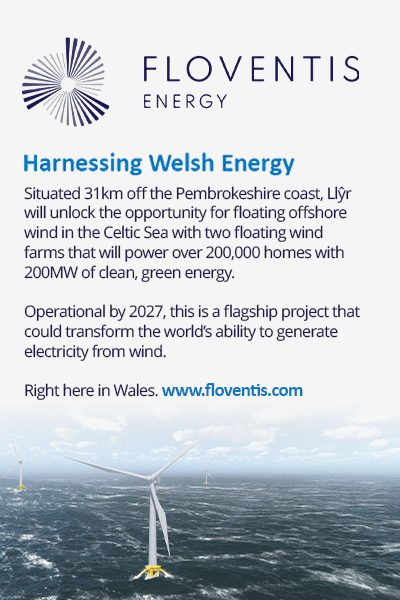
An independent commission of experts has recommended that the UK Government acts now to harness the “huge potential” for tidal range energy in the Severn Estuary.
The Severn Estuary Commission comprises of nationally and internationally recognised engineers, financiers, scientists and other experts. Together, they have spent the last year engaging with more than 500 individuals and more than 200 local and national organisations to explore if it is now possible to harness the power of the UK’s largest tidal range following decades of proposals.
The commission is due to publish its final recommendations at an event in London in partnership with the Institution of Civil Engineers.
The commission has concluded that tidal range energy in the Severn Estuary is “feasible” and could deliver predictable, renewable electricity that will work independent of weather conditions. With UK electricity demand set to more than double by 2050, the commission has called for urgent investment to make sure this kind of energy can play a part in the future energy system in a way which is sustainable.
The UK’s National Energy System Operator already predicts that tidal energy will need to play a part in any future energy system.
The Severn Estuary has one of the highest tidal ranges in the world and could provide the vast majority of the UK’s total tidal energy. However, it also remains of international environmental importance.
To harness this energy without damaging natural habitats, the commission has recommended:
- The UK Government takes steps to ensure that tidal range energy is recognised in national policy to allow progress on the many schemes proposed across the country.
- Both the UK and Welsh Governments back the development of a new tidal lagoon in the Severn Estuary as part of a “Commercial Demonstration Project”. As well as generating a large amount of low-carbon electricity, this project would drive investment, generate critical environmental data and, if successful, pave the way for further projects securing economic growth and long-term energy resilience for the UK and make the UK a global hub for tidal range energy.
- Improved cross-border working and planning is needed to ensure any new development can be strategically delivered to ensure best outcomes for the area.
The Severn Estuary Commission has been chaired by Dr Andrew Garrad CBE and was launched last year by the Western Gateway – a partnership of the 28 local authorities across South Wales and Western England.
Dr Garrad recently received the Queen Elizabeth Prize for Engineering in recognition of his role in pioneering development the modern wind energy industry.
He said:
“This last year has been an eye-opening experience for all of us on the commission, understanding the huge potential of this source of renewable energy and also the international environmental importance of the estuary. Indeed, what sets this Commission aside from previous studies is the emphasis that it has placed on the environment.
“Electricity demand will increase with the widespread uptake of electric vehicles, electrification of heating, industry and proliferation of data centres. We urgently need to get serious about how we can make use of our natural resources to meet this demand whilst also tackling our carbon emissions.
“Given the likely timelines for developing a project of this scale, we need to act now to ensure we can deliver the energy when it is needed and at the same time safeguard the environment.”
The recommendations have been welcomed by the Welsh Government.
Cabinet Secretary for Economy, Energy and Planning Rebecca Evans MS said:
“We want to make Wales a world centre for emerging tidal technologies, and the Severn Estuary is a source of immense potential energy as one of the highest tidal ranges in the world. I welcome the work of the Severn Estuary Commission and I look forward to working with the UK Government and the Western Gateway to make sure that we can harness its potential whilst also protecting this unique asset.”
Now that the commission have finished their recommendations, it will be down to the local authorities who make up the Western Gateway partnership to work with UK and Welsh Government alongside industry to see how they can be put into action.
Sarah Williams-Gardener, Chair of the Western Gateway, said:
“After many years of debate, we now know that the huge potential of tidal energy in the Severn can and should play a key part in our energy supply.
“We need urgent action to make the most of this opportunity. A lagoon project would not only deliver predictable renewable energy, it could also add up to £12 billion GVA to the UK economy and 220,000 job years in the construction phase.
“I am very grateful to the work of this commission to explore this huge opportunity for the UK. On behalf of our board of local authorities, I look forward to working with both UK and Welsh Government to make this a reality.”
Independent reports from WSP, APEM, Hardisty Jones Associates, Oxford Economics, Arcadis, Arup, Agilia Infrastructure Partners and others include detailed findings on the environmental, financial, socio-economic and engineering aspects of tidal range energy in the Severn Estuary and have informed the final recommendations.





